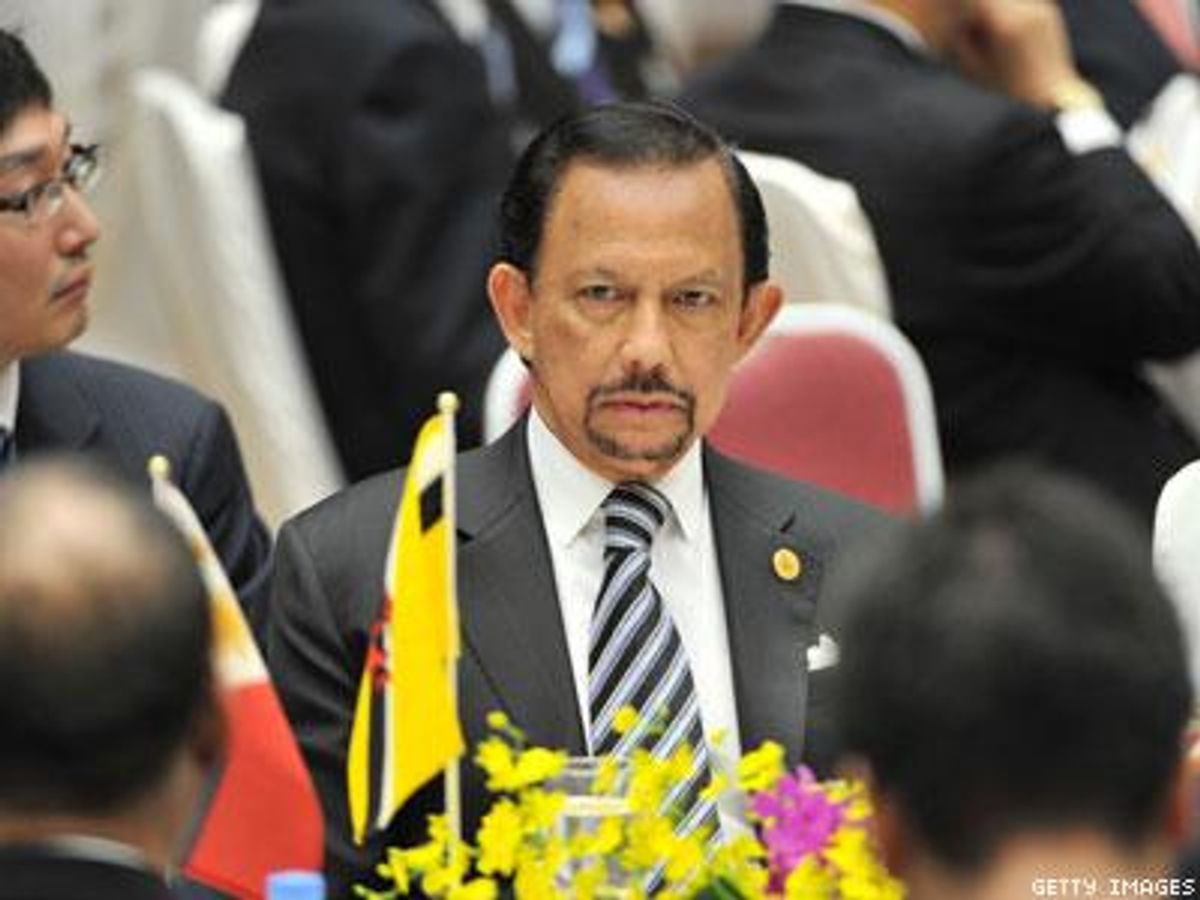The United Nations has come out against Brunei for instituting a law that allows death by stoning for those found guilty of having gay sex, among other offenses like adultery, robbery, and defamation of the Prophet Mohammed.
The law, which is scheduled to go into effect April 22, would allow a person to be stoned to death for the first time in Brunei's history. In fact, the law would be the first time since 1957 that Brunei would enforce the law with the death penalty.
"Under international law, stoning people to death constitutes torture or other cruel, inhuman or degrading treatment or punishment and is thus clearly prohibited," Rupert Colville, spokesman for the Office of the UN High Commissioner for Human Rights, said at a news conference in Geneva last week.
Colville said that in countries where death by stoning is allowed, it usually leads to more women receiving the sentence, so women, along with sexual minorities, would especially be targeted under the law.
Under Brunei's constitution, His Majesty Paduka Seri Baginda Sultan Haji Hassanal Bolkiah Mu'izzaddin Waddaulah essentially leads all areas of government, according to Gay Asian News.

















































































